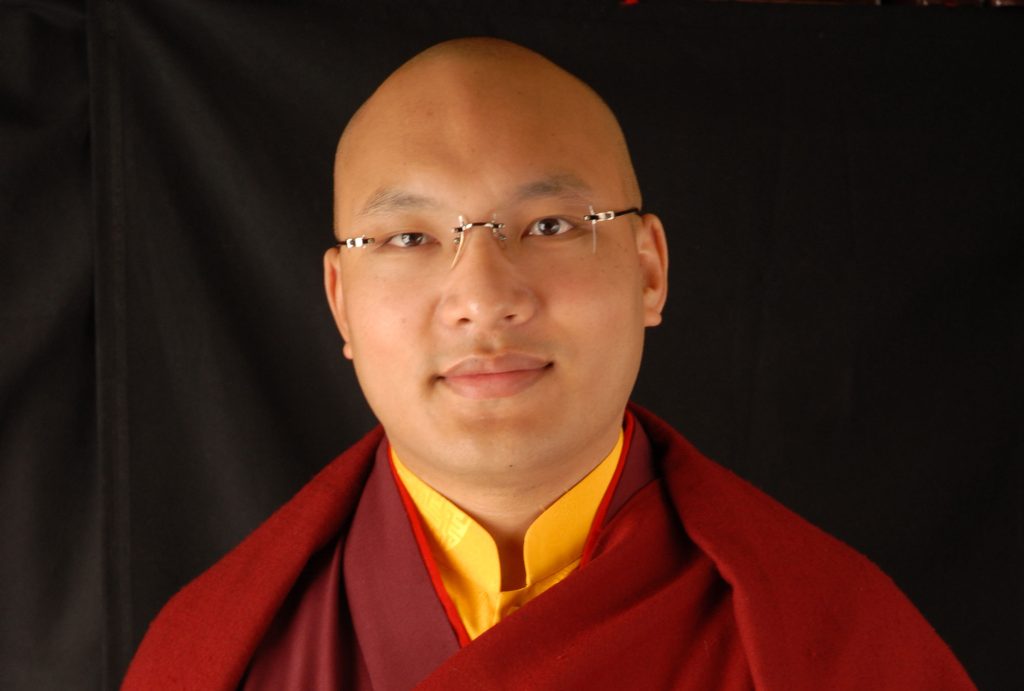Nothing is permanent, so everything is precious. Here’s a selection of some happenings—fleeting or otherwise—in the Buddhist world this week.
Karmapa Ogyen Tinley Dorje to Oversee Monlam in New York
Ogyen Tinley Dorje, one of two claimants to the title of the 17th Karmapa, will preside over the Kagyu Monlam prayer festival in New York this week. The Kagyu Monlam is the largest prayer festival for the Karma Kagyu lineage of Tibetan Buddhism. The Karmapa has been overseeing the festival in Bodhgaya, India, since 2004. But this year, he has been living in America due to medical issues. The New York event, hosted by the Danang Foundation, will take place at York College in Queens from June 6–9 and will be followed by a lamp lighting for peace by the Karmapa at Madison Square Garden on the 10th.
Call It Airbn“be”
A Japanese company is launching an Airbnb-like service for temple stays. The Osaka-based Waka is starting the website Terahaku to help visitors find traditional accommodations called shukubo, which have become a popular alternative to hotels and guest houses (Jpn., ryokan) for tourists seeking a more spiritual experience. The temple stays are expected to boom after Japan passed a new law easing restrictions on renting spare rooms.
U.S. Religious Freedom Report Flunks China
The U.S. released its annual International Religious Freedom report this week, pointing to continued infringement by the Chinese government on the rights of the Tibetan people, the Central Tibetan Administration notes. “As China’s President Xi Jinping further consolidated power, conditions for freedom of religion or belief and related human rights continued to decline,” the report states. It cites the continued detainment of the Panchen Lama, the imprisonment of Tibetan language advocate Tashi Wangchuk, and the fact that China “evicted thousands of monks and nuns from the Larung Gar Buddhist Institute in Tibet before demolishing their homes” as evidence for China’s continued assault of religious rights.
Don’t Liberate All Sentient Beings
Buddhists in Singapore were being urged this week to forgo releasing animals while celebrating Vesak Day, the Buddha’s birthday, the Straits Times reports. The tradition—called “fangsheng” among Chinese Buddhists—is meant to liberate the animals, but experts note that many of the animals released grew up in captivity and will suffer more if released into the wild or into an urban environment. Dr. Neena Mahadev, an anthropology professor at Yale-NUS College in Singapore, told the paper that Singaporean Buddhists “tend to be mindful of the broader ecosystem and are educating themselves on which animals are appropriate for release.”
Buddhist Circuit Due Date
The Indian government’s plan to create a Buddhist Circuit linking important landmarks in the Buddha’s spiritual journey may be completed by December, Indian transport minister Nitin Gadkari said this week, according to the Times of India. “We are improving the roads in all places connected to Lord Buddha in Uttar Pradesh and Bihar. Varanasi airport would soon gain international status,” he said. The circuit will improve transportation between sites in Lumbini, where Buddha was born; Bodhgaya, where he attained enlightenment; Sarnath, where he gave his first sermon; and Kushinagar, where he died.
Zen Priest Leads Charge for Clean Energy
A Zen priest in Japan is leading an effort to divest money from banks who support projects that are harmful to the environment, NBC News reports. Tomonobu Narita, the head priest at Totsuka Zenryo Temple in Yokohama, says he became interested in energy issues after the Fukushima nuclear meltdown. Narita shifted the funds from his temple to a bank that does not invest in fossil fuels or nuclear energy and has been trying to convince other temples to do the same. “Right now the greenery that we have, the earth, the soil — everything is a product of the things that people who have come before us have left behind, so we can’t just treat those things carelessly,” Narita told NBC.
Buddhist Scholars Honored
The American Academy of Arts & Sciences has honored two Buddhist scholars. University of Chicago professor Matthew Kapstein and Princeton University professor Jacqueline Stone have joined President Barack Obama, Supreme Court Justice Sonia Sotomayor, Benjamin Franklin, and Albert Einstein in the elite group of award recipients. Stone’s studies focus on medieval and modern Japanese Buddhism. Her current research areas include death and dying in Buddhist cultures, Buddhism and nationalism, and traditions of the Lotus Sutra, particularly Tendai and Nichiren, according to Princeton’s website. Kapstein, the Numata Professor of Buddhist Studies at UChicago, has been lauded for his expertise in Indian philosophy and the Buddhist traditions of Tibet.
Thank you for subscribing to Tricycle! As a nonprofit, we depend on readers like you to keep Buddhist teachings and practices widely available.
